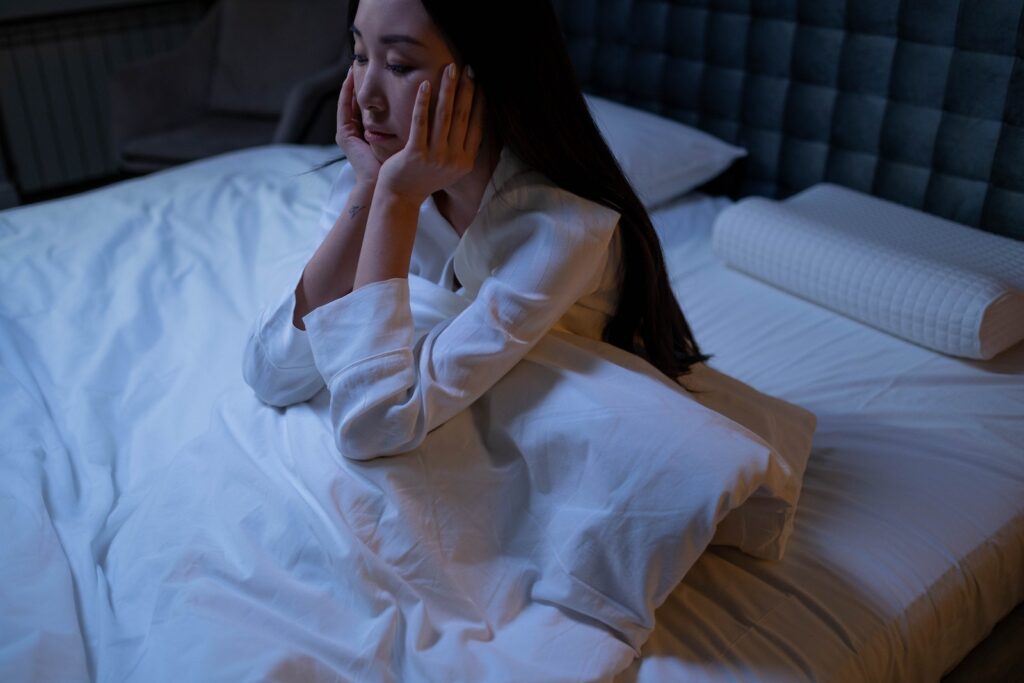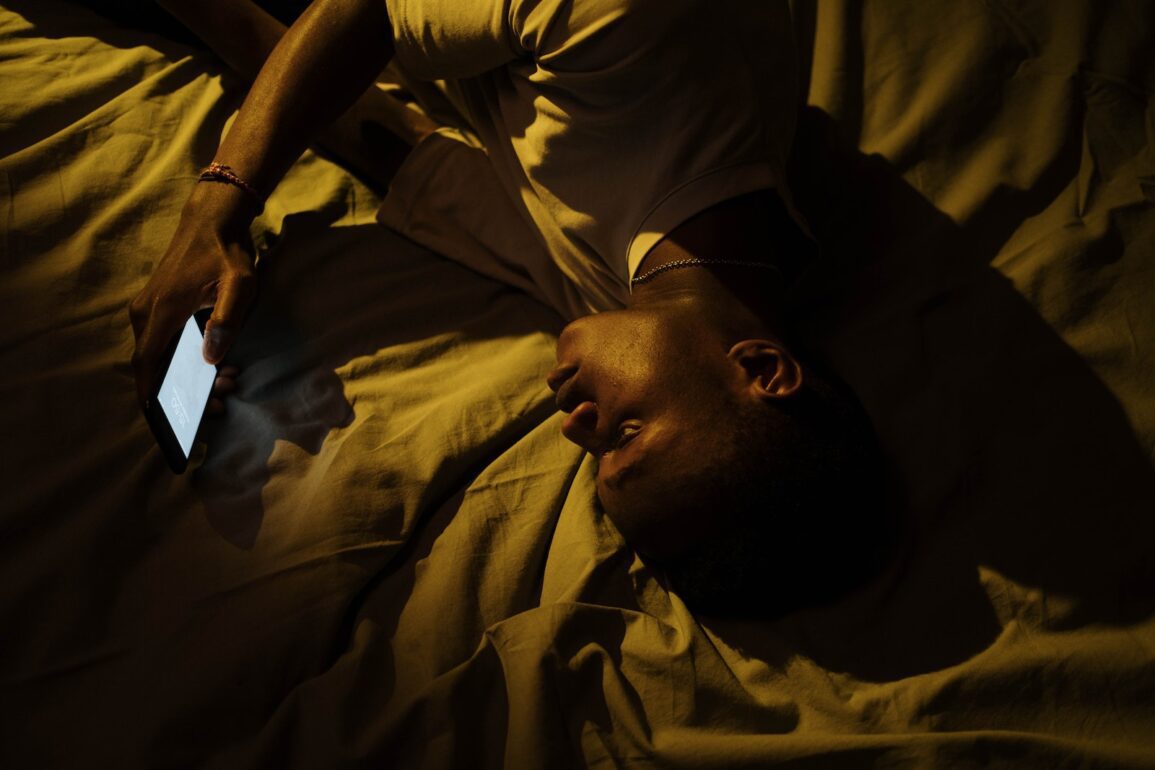Do you frequently wonder, “Why can’t I sleep?” or “Why am I more exhausted when I get out of bed than when I go to bed?” There are numerous reasons why someone may be experiencing difficulty sleeping. Each of these factors can make a good night’s sleep more elusive than partially-remembered dreams.
If you have trouble falling or staying asleep on a regular basis, the explanation is likely to be something you’re doing (like as drinking coffee late in the day) or something you’re not doing (like getting rid of the stress that keeps you awake). Fortunately, there are several steps you may do to improve your situation.
Sleep Disorder Symptoms
There are various frequent indications that you are having difficulty sleeping, many of them appear throughout the day. You may have noticed:
- Difficulty concentrating
- Irritability
- Lack of energy
- Mood swings
- Slow thinking
- Poor attention span
- Poor memory
- Difficulty making decisions
If you can’t sleep at night, you may feel foggy and lethargic throughout the rest of the day. To stay awake, you may even sleep during the day or eat large amounts of caffeine.
Why am I unable to sleep?
When you say, “I can’t sleep,” you may be referring to your inability to fall asleep, but it may also refer to your inability to stay asleep. There are numerous things that could be contributing to sleep problems. Lifestyle choices, sleep habits, stress, and medical issues can all have an impact.
Anxiety
Sleep and anxiety are inextricably linked. If you have difficulty sleeping, your anxiety may worsen, and if you have high anxiety, you may have difficulty sleeping. In fact, practically all mental health disorders can co-occur with sleep disruption.
According to research, the type of sleep disruption differs according to anxiety type. People who suffer from condition anxiety (anxiety caused by a current event) often have more difficulty falling asleep. People with trait anxiety (an anxious personality) frequently have difficulty sleeping. 4
Poor sleep habits
Sleep habits like staying up late and having an erratic sleep schedule might contribute to poor sleep. Napping later in the day might also cause sleep problems. 5
Poor sleep patterns, in addition to difficulty getting or staying asleep, can have a severe impact on mental health. Poor sleep hygiene has been linked to lower mental well-being in studies. 6
Sharing a Bed
Sharing your bed, whether with a human or four-legged buddy, dramatically affects sleep quality—especially if your partner snores, crowded you, hogs the covers, or otherwise makes you uncomfortable. You and your human spouse may have distinct sleeping preferences (such as temperature, light, and noise level).
Sharing a bed with an infant might result in more interrupted sleep for the parent and more night wakings for the child.
Sleeping in an adult’s bed can also be hazardous to the infant, resulting in hypoxia or suffocating.
The American Academy of Pediatrics recommends that babies sleep in their own cribs at all times.
Alcohol
A single glass of alcohol before bedtime may not hinder your ability to sleep, but excessive consumption does. This is because alcohol disrupts the sleep cycle, particularly REM sleep, which involves dreaming.
You may not understand this because the first effect of alcohol is relaxation. This can help you sleep quickly after drinking. However, your sleep will be interrupted and unrefreshing. This impact is significantly more common in persons who consume a lot of alcohol, as it frequently coincides with insomnia.
If you consume a lot of alcohol at night, you’re more likely to get up in the middle of the night to use the sleep, which might impair your sleep quality.
Poor Sleep Environment
Many sleep specialists advise keeping your bedroom temperature between 60 and 67 degrees Fahrenheit at night.
However, many individuals prefer to save money by bringing the thermostat down to the freezing zone in the winter and turning off the air conditioning in the summer.
However, both of these extremes will derail your journey to the Land of Nod. For the most rejuvenating sleep, your body needs to cool slightly at night, which is impossible in an overly heated bedroom. A room that is excessively cold, on the other hand, will wake you up.
Caffeine
You already know that a cup of coffee before bed is a poor idea, but did you realize that caffeine has a half-life of three to five hours? That implies only half of the medication is removed during that period, with the other half remaining in your body. That is why a late-afternoon cup of coffee can interfere with your sleep later that night.
Caffeine has been linked to having a harder difficulty falling asleep, spending less time asleep, and having a lower reported quality of sleep—especially in older persons, who are more sensitive to this chemical.
Exercise
A leisurely walk around the block with your dog in the late evening is acceptable (especially if it brings your pet’s wake-up time closer to your own). However, studies have shown that a heart-pumping, sweat-dripping cardio session within one hour of bedtime is excessive. 13
As you sleep, your body temperature and heart rate automatically decrease.
Exercise increases those two bodily functions as well as activates your entire neural system, making it difficult to sleep.
Your Diet
Is a piece (or two) of pizza or a bag of chips your go-to bedtime snack? If this is the case, don’t be surprised if you wake up staring at your ceiling.
A big amount of fat or protein soon before bedtime, especially a spicy meal, might put your digestive system into overdrive, making sleep difficult and perhaps causing heartburn.
Hunger pangs, as well as sharp blood sugar decreases during the night, can cause you to wake up.
Stress
You’re not alone if “I can’t sleep” is followed by “I’m so stressed.” Approximately 43% of American adults report that stress has kept them awake at least once in the recent month.
During the day, life’s events tend to distract you, but once you’re in bed, your mind is free to wander. Most people’s minds choose to focus on the unpleasant parts of their lives rather than the positives. This can make it difficult for them to get a decent night’s sleep.
Medications
Do you take any prescription medications? If so, this could be the cause of your inability to sleep. Drug-induced insomnia can be caused by a wide range of prescription medications, including those used to treat:
- Asthma
- Psychiatric diseases
- Cardiovascular issues
- Cancer
- Hypothyroidism
- Quitting smoking


Screen Exposure
Light exposure before bedtime reduces your sleep quality, whether it is from your bed partner’s reading lamp, the alarm clock display, or the street light outside your window. Light emitted by electronic gadgets can have the same impact, which might be problematic if you like to watch television or use your smartphone immediately before bed.
Longer screen time has been linked to difficulty falling asleep, shorter sleep lengths, lower sleep efficiency, and poorer sleep quality in studies.
It is also crucial to recognize that other issues, such as sleep disorders and depression, can make sleep difficult.
Consult a healthcare provider if you feel that a physical or mental health condition is causing your bad sleep.
Timetable for Work
Working an early or late shift might upset your circadian cycle, especially if the shifts are irregular. Working long hours in a difficult job can often cause anxiety, leaving you staring at your bedroom ceiling.
Traveling
Jet lag confuses your body and mind because it disrupts your normal sleep routines. Sleeping in an unfamiliar place can also be challenging.
Mental Health issues
Insomnia can sometimes be an indicator of a mental health problem, such as depression. You may have difficulty falling or staying asleep, sleep excessively, or sleep at times that are uncommon for you. Furthermore, several mental health drugs (e.g., fluoxetine, venlafaxine) might have stimulating effects that interrupt sleep.
The Effects of Poor Sleep
Sleep deprivation can have a variety of harmful health consequences. Not getting enough sleep has significant physical and mental health repercussions, including:
- Anxiety
- Bipolar disorder
- Cardiovascular disease
- Depression
- Type 2 diabetes
- High blood pressure
- Hormone imbalances
- Obesity
- Immune system weakness
In addition to these health issues, a lack of sleep has been linked to a general decline in quality of life and an increased chance of death.
If you frequently question why you can’t sleep, it’s critical to identify the source of the problem and take efforts to improve your sleep quality.
Can’t sleep? What should I do?
When I can’t sleep, I take several crucial measures to figure out what’s wrong and discover remedies. However, because everyone is different, what works for you may not work for someone else.
Work to eliminate some of the sleep-stealing factors that are interfering with your sleep. The following tactics will help you obtain more and better sleep at night:
- Limit alcohol consumption, especially in the evening.
- Give your pets their own beds, persuade your snoring partner to sleep on their side, and use a white-noise machine to drown out noise.
- To avoid being excessively hot or chilly, adjust your thermostat. If that isn’t an option, wear warm socks and soft blankets during chilly spells, and turn on a fan in the summer. Turn off all electronics at least an hour before going to bed.
- Close the door and hang blackout shades or drapes in your bedroom to block out light.
- Although the effects of caffeine vary depending on tolerance, amount, and age, it is advised to limit your intake to 400 mg per day and avoid caffeine sources six hours before night.
- If you’re stressed out, consider a daily meditation practice. You don’t have to be a yoga expert or spend hours sitting on a mat. Even 10 minutes a day can help.
- Plan your workout for the morning or go to the gym during your lunch break. If you exercise at night, don’t do it within an hour of going to bed.
- Before going to bed, eat a modest snack high in complex carbohydrates and low in protein (but includes both). A small bowl of whole-grain cereal and milk, a slice of deli turkey wrapped around a celery stick, or a piece of fruit coated with peanut butter are all good options.
A Message from Sons Of Universe
“How come I can’t sleep?” It’s a question that many individuals ask when they find themselves awake at night or fatigued the next day. Understanding some of the most prevalent causes of poor sleep is frequently the first step toward resolving the issue.
The first step is to identify and address any lifestyle variables that may be interfering with a good night’s sleep. If you still don’t feel better after making these modifications, consult a doctor. They can assist you in getting to the bottom of your sleep issues and finding the appropriate treatment so you can get the rest you require.




